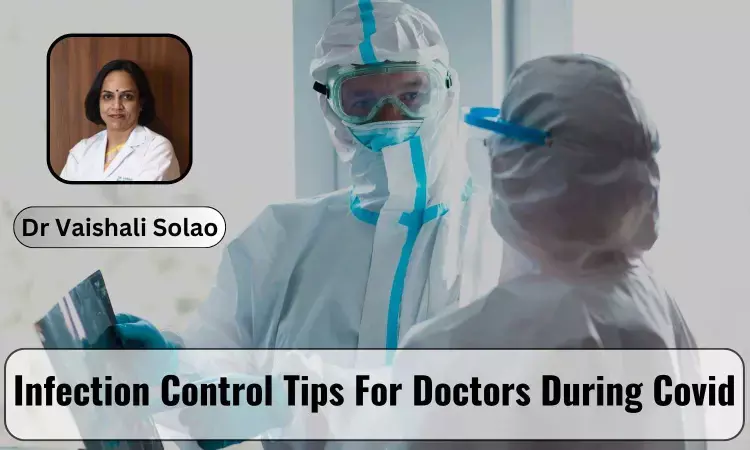- Home
- Medical news & Guidelines
- Anesthesiology
- Cardiology and CTVS
- Critical Care
- Dentistry
- Dermatology
- Diabetes and Endocrinology
- ENT
- Gastroenterology
- Medicine
- Nephrology
- Neurology
- Obstretics-Gynaecology
- Oncology
- Ophthalmology
- Orthopaedics
- Pediatrics-Neonatology
- Psychiatry
- Pulmonology
- Radiology
- Surgery
- Urology
- Laboratory Medicine
- Diet
- Nursing
- Paramedical
- Physiotherapy
- Health news
- Fact Check
- Bone Health Fact Check
- Brain Health Fact Check
- Cancer Related Fact Check
- Child Care Fact Check
- Dental and oral health fact check
- Diabetes and metabolic health fact check
- Diet and Nutrition Fact Check
- Eye and ENT Care Fact Check
- Fitness fact check
- Gut health fact check
- Heart health fact check
- Kidney health fact check
- Medical education fact check
- Men's health fact check
- Respiratory fact check
- Skin and hair care fact check
- Vaccine and Immunization fact check
- Women's health fact check
- AYUSH
- State News
- Andaman and Nicobar Islands
- Andhra Pradesh
- Arunachal Pradesh
- Assam
- Bihar
- Chandigarh
- Chattisgarh
- Dadra and Nagar Haveli
- Daman and Diu
- Delhi
- Goa
- Gujarat
- Haryana
- Himachal Pradesh
- Jammu & Kashmir
- Jharkhand
- Karnataka
- Kerala
- Ladakh
- Lakshadweep
- Madhya Pradesh
- Maharashtra
- Manipur
- Meghalaya
- Mizoram
- Nagaland
- Odisha
- Puducherry
- Punjab
- Rajasthan
- Sikkim
- Tamil Nadu
- Telangana
- Tripura
- Uttar Pradesh
- Uttrakhand
- West Bengal
- Medical Education
- Industry
5 Infection Control Tips For Doctors To Safeguard Themselves From Covid-19 Infection - Dr Vaishali Solao

Doctors fall in the high-risk category and can acquire the COVID-19 infection due to the nature of their interactions with symptomatic and asymptomatic patients. Doctors, nurses, and allied healthcare staff have been a major resource in fighting the pandemic, with their selfless and relentless efforts. As we have seen over the last three years, some have paid a very heavy price while carrying out their duties, sadly. We as major torchbearers of healthcare need to take care of ourselves first, so that we can give the necessary services to those in need.
These are five simple tips for clinicians that can help save themselves from COVID-19 infection:
- During the phase of rising infection, consider every patient and accompanying person as potentially infective. No matter what the complaints of the patients, they can be positive and so can their family members and hence a potential source of infection
- Wear an N95 mask: CDC recommends all doctors and healthcare personnel wear N95 when taking care of potential positive or proven positive patients. The mask should be well-fitted and NIOSH certified. One mask should not be used for more than a shift/ day as it gets saturated and loses efficacy. Double masking is not recommended over N95. If the mask is used for a short duration in a day, it can be reused for 2-3 days. Store the mask in a dry paper bag in between use and do not touch the outer surface of the mask. Do not use a mask with exhalation valves. If you do not have N95 on a particular day, use a well-fitting surgical mask with another layer of cloth mask on top. But remember, N95 offers the highest protection and is recommended for all doctors coming in contact with positive or suspected patients
- Distancing in OPD: During OPD consultation, keeping a glass barrier and six feet distance is highly beneficial. Some specialists will have to examine their patients closely like ENT or dentists, and their exposure can be higher. A well-ventilated consulting room also helps cut down the risk
- Hand hygiene: No matter what level of practice you are in - OPD, Nursing home, primary secondary or tertiary health care, hand hygiene practices have a major role in cutting down transmission. Using an alcohol hand rub for 30 seconds or washing with soap and water after every patient is a mandatory practice for doctors
- PPE in COVID-19 wards or ICU: When working in a COVID-19 ward or ICU, diligently follow the donning and doffing protocols. An N95 mask, cap, gown, and gloves are the currently practised personnel protective gear. PPE protocols of the local hospitals should be strictly adhered to. Wear protective eye gear in addition to PPE when performing procedures that cause aerosol generation on COVID-19 patients.
Doctors who have high-risk factors like Diabetes, Cardiovascular Disease, and immunosuppression, should be extremely adherent to COVID-19-appropriate behaviour at work, and not let their guard down even for a moment. Doctors and nurses continue to be the principal heroes of the ongoing pandemic. We consider it our privilege and blessing to be custodians of the health of society, but it cannot be at the cost of our own health and safety. Save yourself first so that you can save more patients.
Disclaimer: The views expressed in this article are of the author and not of Medical Dialogues. The Editorial/Content team of Medical Dialogues has not contributed to the writing/editing/packaging of this article.
Dr Vaishali Solao, MBBS, MD (Medicine) is a Head & Sr. Consultant (Critical Care) at Fortis Hospital, Mulund. She has over 20 years of experience in Critical Care. For the last 10 years, Dr Solao has been involved in Liver Intensive Care primarily. Her areas of expertise are Acute Liver Failure, Acute on Chronic Liver Failure, Alcoholic Hepatitis, Multiorgan Soild Organ Transplant Intensive Care, Extracorporeal Liver Support, and Extracorporeal Blood Purification.


